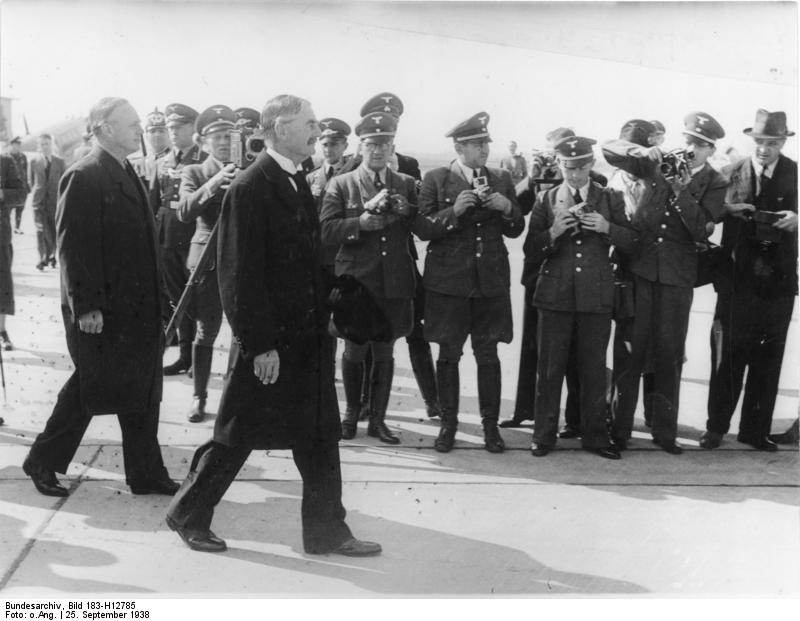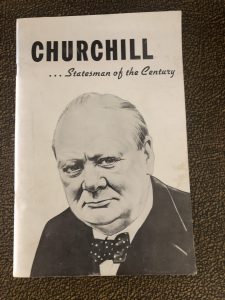Churchill Archive
Political Cartoons on Appeasement

September 5, 2018
Appeasement
CHAR 2/355/40 and CHAR 2/355/42
80 years ago this month, in the early hours of 30 September 1938, British Prime Minister Neville Chamberlain signed the Munich Pact. The agreement between the U.K., France, Italy and Germany allowed Germany to annex a portion of Czechoslovakia known as the Sudetenland. This settlement has become one of the most well-known examples of the dangers of appeasement, a strategy that involves giving concessions to an aggressor nation in order to avoid conflict.
The circumstances which led to the appeasement of Germany dated beyond Adolf Hitler’s reign as Chancellor. Many within Germany (and indeed the U.K.) had long felt that their country had been treated unfairly in the terms of the Treaty of Versailles. Along with accepting responsibility for all of the loss of life and damage done during the war (as well as making significant reparation payments), Versailles meant that Germany had to concede 25,000 square miles of territory. This included giving up the Sudetenland to the newly formed nation of Czechoslovakia, a region which was inhabited predominately by German speakers. As Hitler had invaded Austria in March 1938 (the Anschluss) without any need for violence, taking the Sudetenland seemed to be the next step in a plan to take back what many in Germany felt was rightfully theirs.
As it happened, the decision for the Sudetenland to be given to Hitler was made without the consultation of Czechoslovakia. Hitler had been triumphant in persuading Chamberlain that this would be the limit of his ambitions to expand Germany. Contrary to the cartoons which serve as the featured document, appeasement as a policy was very positively portrayed by the majority of British newspapers at the time. Appeasement was fundamental to traditional 19th century British foreign policy as a tactic to avoid being drawn in to European conflict. Additionally, due to the dire economic conditions of the 1930s and the not so distant memories of the First World War, it was a popular view that Britain was not ready for another war. However, it has since been said that Chamberlain had a firm grip over what was reported by the BBC in terms of negativity towards Germany. 15,000 people protested in Trafalgar Square on the same day the Munich Pact was signed, an event which went unreported by the BBC.
Subscribe
WANT MORE?
Get the Churchill Bulletin delivered to your inbox once a month.






